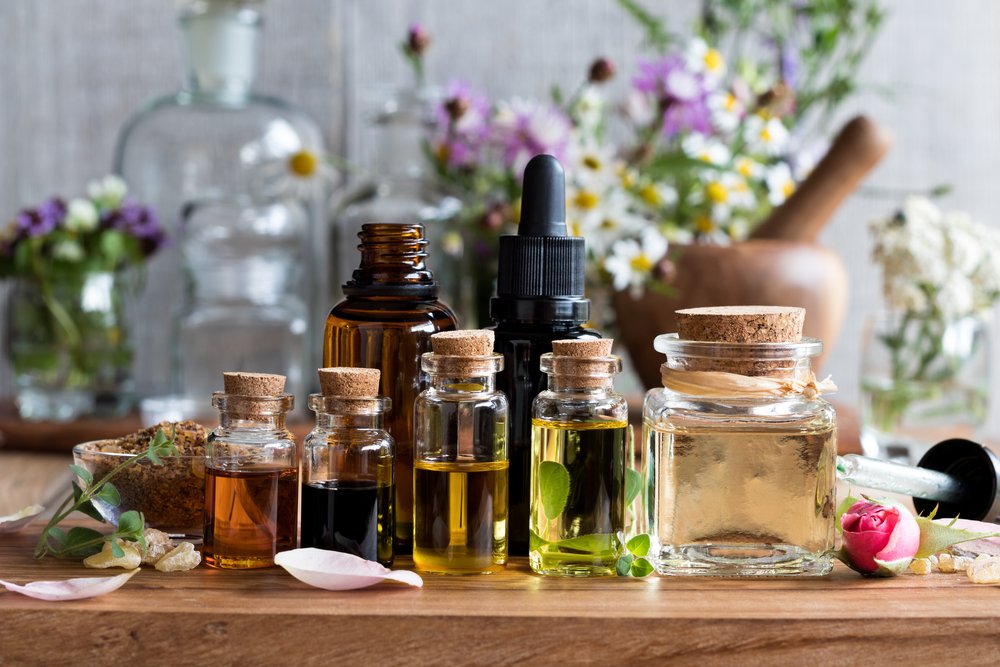The global pandemic, political turmoil, and now the ongoing cost-of-living crisis has left many of us feeling increasingly stressed, anxious and upset. With that in mind, Dee Marques shares 11 practical tips to feel stress-free quickly – all backed by science.
Stress is one of the biggest health challenges we face today. While a small amount of positive stress can be good for us, ongoing chronic stress can lead to or exacerbate many serious health problems. And with Coronavirus still testing the health and well-being of the globe, it's become increasingly difficult to remain free from stress, with many of us noticing our anxiety levels are on the rise.
Indeed, in the US, more than 55 per cent of people claim to feel stressed during the day, a figure that’s well above the global average (35 per cent). Meanwhile, in the UK, nearly 75 per cent of adults say they have felt overwhelmed by stress at some point over the past year.
In fact, stress isn't “just stress”, since it affects both our mental and physical health. Studies show a close link between stress and mental health conditions like depression and anxiety. Other side effects of unmanaged stress include anger, low self-esteem, loneliness and poor memory.
As for its potential impact on the body, stress can cause anything from headaches to digestive disorders, insomnia, skin and hair problems, and increased chances of developing heart conditions.
11 ways to feel stress-free fast
Since stress is so widespread, you may wonder if it really is possible to become free from stress. While that may seem hard to achieve, there are definitely things you can do to reduce your stress and anxiety levels that do not require a great deal of time or money. Here are 11 ideas you can try to reduce stress and start to feel calm quickly.
1. The power of houseplants
One of the simpler (and more enjoyable) steps you can take is creating a stress-free environment. We can’t always do that at large scale, but there are little things you can do in you home and personal working space. Indoor plants, as humble as they may seem, have become increasingly popular recently and for good reason – they can boost enormously your ability to cope with stress.

Plants may reduce blood pressure and stress levels shutterstock/Amilao
In fact, a Japanese study compared the feelings produced by transplanting a plant vs working on a computer. The result showed that while the group who worked on a computer had higher blood pressure, those who interacted with plants felt calm and soothed. Indeed, adding indoor plants to your home environment can make a world of a difference and help you to become stress-free.
2. Breathing techniques
Our bodies react to stress by going into overdrive. Studies confirm a link between slow controlled breathing and the nervous system: taking deep breaths reminds the brain that it’s time to calm down, and then the brain sends the same message to the body to stabilize the heart rate and release tension in the muscles.
If you’re not familiar with the benefits of controlled breathing, it’s time to explore some techniques that can help you control anxiety and help you feel stress-free. Check out the final tip in our article on mindful behavior for a great breathing technique that will relax you within seconds and feel your melt away.
3. Physical activity
Exercise causes a spike in endorphins, one of the happiness hormones. To achieve a stress-free state, the key is to engage in physical activity regularly. The type and frequency of exercise depends on your preference and overall health status, but as a guideline, a Finnish medical study found that moderate aerobic exercise was best for higher endorphin levels.
“Adding indoor plants to your home environment can make a world of a difference and help you to become stress-free.”
Some types of moderate exercise that can bring relief include cycling, brisk walking, mindful running, and water aerobics. The impact of COVID-19 means we can't do all of these right now, but still try and do some form of exercise in your home or garden to keep your spirits up and mental health in check.
4. Body relaxation
To become stress-free fast, add a mix of mood-boosting exercise with calming relaxation techniques. Relaxation methods like tai chi, meditation, yoga, or mindfulness have been practised for centuries. Consciously relaxing your body, or even parts of it, can slow down your heart rate, lower stress hormone levels, and boost confidence in your ability to cope with problems. Some techniques you want to try include progressive muscle relaxation, massage therapy, qi gong, and ashtanga yoga.
RELATED: Yes, You Can Meditate Lying Down. Here's How and Why
5. Experiment with essential oils
Aromatherapy has been around for thousands of years. Even in Ancient Egypt people were aware of the power of aromatic herbs and their role in well-being. The organs responsible for our sense of smell are directly connected to the parts of the brain linked to emotions, so exposure to certain scents can have a positive effect on mood and help reduce anxiety.
Lavender essential oil has been widely studied for its ability to induce calm, and it seems effective in the short-term treatment of anxiety and restlessness. Other essential oils to help you become free from stress include jasmine, bergamot, holy basil, rose, frankincense, vetiver and lemon balm.

Aromatherapy: sniff to reduce stress shutterstock/Madeleine Steinbach
6. Create a stress-free playlist
We’re only beginning to understand the power of music and how it brings stress relief. If, as 17th century playwright William Congreve said, “music has charms to soothe a savage beast”, surely it can help us reach a stress-free state too?
One study compared stress levels in surgical patients who listened to music before an operation and those who didn’t, and found that those who listened to music had lower blood pressure and were said to feel less anxious. Some sounds and rhythms can be more effective than others.
7. Do nothing
Feeling overwhelmed by tasks or responsibilities is one of the most common causes of stress. Sometimes, the best response is to put everything on hold and do nothing but take care of yourself: something many of us had to do during the COVID-19 pandemic.
MORE LIKE THIS:
- How to Protect Your Energy: 7 Science Backed Techniques
- What the 12 Pillars of Well-Being Can Teach Us
- How to Practise Niksen: the Art of Doing Nothing
However, if doing nothing is still not an option, consider doing less or doing things at a slower pace, or doing them mindfully. Mindfulness gives you a chance to slow down, focus, and become more aware of your reactions. It has also been connected to lower activity in the amygdala, the part of the brain that triggers fear and stress responses.
8. Visualization techniques
Visualization techniques can have a calming effect when stress becomes too much to handle. Immerse yourself in a scene that makes you happy and relaxed, and recreate every sensory aspect of the scene, from the smells to the sights or the sounds. By focusing on the sensory experience as a whole, you direct your attention away from sources of stress. Once that happens, your brain will also signal your body to relax.
“Exercise causes a spike in endorphins, one of the happiness hormones. To achieve a stress-free state, the key is to engage in physical activity regularly.”
Researchers have found that visualization (also called guided imagery) can boost mood and improve depressive symptoms in multiple sclerosis patients, so it surely can have a beneficial effect on stress too, so consider trying visualization meditation to remove stress.
9. Share your feelings
A burden shared is a burden halved, so don’t hesitate to talk someone close to you if worry begins to take over. Sharing your worries can bring a sense of relief, and scientific evidence supports this. A 2013 study found that disclosing feelings of worry and anxiety to someone sympathetic reduced levels of cortisol, the stress hormone. Sometimes you may even prefer to talk to a stranger. Talking therapy is effective in stress relief, whether it’s in person or over the phone.

Talking is a therapy to become stress-free shutterstock/Monkey Business Images
10. B vitamins for stress support
Did you know that certain vitamin deficiencies can lead to increased feelings of stress? A stress-free diet should be especially rich in B-complex vitamins. Some researchers suggest that these vitamins can lower homocysteine, an amino acid that spikes in stressful situations.
RELATED: The Gut-Brain Axis
So, it’s a good idea to revamp your meal plan to ensure it includes good amounts of vitamin B-rich foods, such as whole grains, legumes, dark leafy vegetables, seeds and nuts. Making this a habit can help lift your mood and reduce the mental fatigue brought about by stress.
11. Honour your true self
Sometimes, stress is a result of internal conflict. There are situations where we must choose between doing what we know in our hearts to be right, and pleasing others or dishonoring our core values. We all have certain values that guide our lives, so take some time to remind yourself of which are the most important to you. One of the steps towards being stress-free is resolving any tension or discrepancies between who you are and who you want to be. This is your opportunity to do just that and feel better.
Takeaway: stress-free living
During these tough times, try not to let stress and rising anxiety levels get in the way of your happiness. While we all experience stressful situations, there’s no reason to be overwhelmed by them, since we have multiple tools to strengthen our inner-self and become stress-free quickly. So, the next time you feel your anxiety levels rising, give some of our suggestions a try. ●
Main image: shutterstock/baranq
happiness.com | The fine art of being: learn, practise, share
Are you a happiness.com member yet? Sign up for free to:
■ enjoy our happiness magazine
■ share and support in our happiness forum
■ learn with free online Academy classes
Written by Dee Marques
 A social sciences graduate with a keen interest in languages, communication, and personal development strategies. Dee loves exercising, being out in nature, and discovering warm and sunny places where she can escape the winter.
A social sciences graduate with a keen interest in languages, communication, and personal development strategies. Dee loves exercising, being out in nature, and discovering warm and sunny places where she can escape the winter.


Join the conversation
You are posting as a guest. If you have an account, sign in now to post with your account.